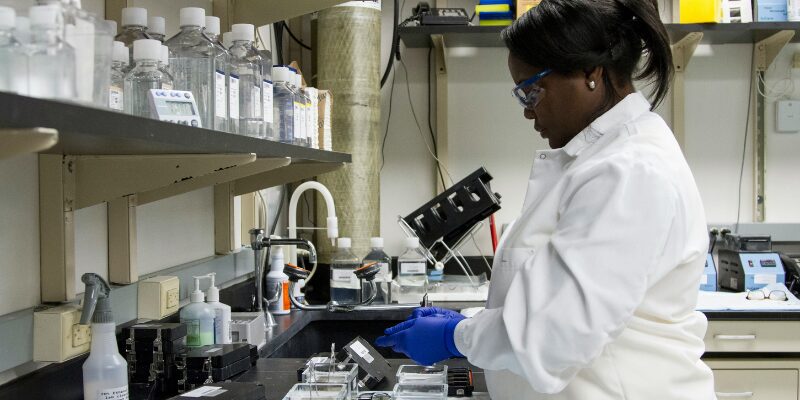Boston, Massachusetts, is known worldwide as a biotech innovation hotspot. Along with nearby Cambridge, the city is home to some of the most advanced biotech companies, universities, and research centers. These places are making huge strides in medicine and healthcare by creating new therapies and technologies. But how did Boston become a top player in biotech?
The journey didn’t happen overnight. It took years of investment in education, strong partnerships between universities and companies, support for start-ups, and smart government policies. Let’s break down what helped Boston become a leader in biotech.
Top-Notch Universities
Boston’s biotech success starts with its world-class universities. Schools like Harvard, MIT (Massachusetts Institute of Technology), and Boston University are known for their research in areas like biology, chemistry, and medicine. These subjects are the backbone of the biotech industry.
MIT, in particular, has played a huge role in shaping Boston’s biotech scene. Its focus on combining engineering with life sciences has led to big breakthroughs. Places like the Koch Institute for Integrative Cancer Research and the Broad Institute (a collaboration between MIT and Harvard) have made major advances in biotech research.
What makes Boston special is how connected these universities are to biotech companies. Students and researchers often work with industry professionals, helping turn academic ideas into real-world medical solutions.
Collaboration Between Universities and Companies
Boston’s universities have always understood the power of working together with companies. These collaborations help bring cutting-edge research out of the lab and into the marketplace. It’s a win-win: universities get the funding to continue their work, and companies gain access to groundbreaking ideas that they can develop into new treatments.
For example, partnerships between Harvard and major pharmaceutical companies like Novartis and Pfizer have led to important medical advancements. This teamwork is key to speeding up the process of turning scientific discoveries into life-saving treatments.
Boston’s research hospitals, like Massachusetts General Hospital, also work closely with biotech companies. They offer valuable clinical data and testing environments that help companies refine their products.
Venture Capital: Fueling Start-Ups
A big reason for Boston’s biotech success is the strong support from venture capital (VC) firms. These investors provide funding for start-ups, helping new businesses turn their ideas into reality. Venture capitalists in Boston understand the risks and rewards of biotech and are willing to take a chance on new ideas.
Well-known VC firms like Flagship Pioneering, Atlas Venture, and Third Rock Ventures play a major role in Boston’s biotech scene. Flagship Pioneering, for example, helped launch Moderna, the company behind one of the first COVID-19 vaccines. These investors don’t just offer money they also guide start-ups on how to grow and succeed.
With this kind of financial support and access to top talent from nearby universities, Boston is a perfect place for biotech entrepreneurs to thrive.
Established Biotech Companies
Boston is home to some of the biggest names in biotech, like Biogen, Vertex Pharmaceuticals, and Genzyme (now part of Sanofi). These companies not only create jobs and boost the local economy, but they also inspire new entrepreneurs.
Many people who start their careers at these big companies go on to launch their own biotech ventures. This constant flow of new ideas and start-ups keeps Boston at the cutting edge of biotech innovation.
Having so many top biotech companies in one area also makes it easy for professionals to network and share ideas. This sense of community helps drive the industry forward.
Government Support
Another key factor in Boston’s biotech success is the support from the state government. Massachusetts has long recognized the importance of the life sciences industry and has created policies to help it grow.
In 2008, the state launched the Massachusetts Life Sciences Initiative, a $1 billion program that provides grants, tax breaks, and infrastructure improvements to attract biotech companies. This initiative has helped Boston stay competitive on a global scale.
The state also focuses on training the next generation of biotech workers. Programs like the Massachusetts Life Sciences Center Internship Challenge give students hands-on experience, preparing them for careers in the biotech industry.
A Culture of Innovation
Boston’s biotech success also comes from its culture of innovation and risk-taking. Entrepreneurs, researchers, and investors in Boston aren’t afraid to explore new ideas, even if they seem risky. This willingness to push boundaries has led to major breakthroughs like CRISPR gene-editing technology and mRNA vaccines.
Failure is seen as part of the process in Boston’s biotech community. Start-ups that don’t make it often leave behind valuable lessons that lead to future successes. This environment encourages creativity and supports the kind of experimentation that drives biotech forward.
What’s Next for Boston Biotech?
Looking ahead, Boston’s biotech future is bright. Advances in areas like artificial intelligence, data analytics, and personalized medicine are set to drive the next wave of innovation. Boston’s ability to attract top talent, foster collaboration, and provide funding will keep it at the forefront of biotech for years to come.
The COVID-19 pandemic showed just how important biotech companies are for public health. Boston’s biotech firms are ready to take on the next generation of healthcare challenges, from new cancer treatments to preventing future pandemics.
Conclusion
Boston’s rise as a biotech leader wasn’t an accident. It took a mix of top universities, strong industry partnerships, venture capital support, and a culture that encourages innovation. By continuing to invest in these strengths, Boston is set to remain a global biotech leader for many years to come.



































